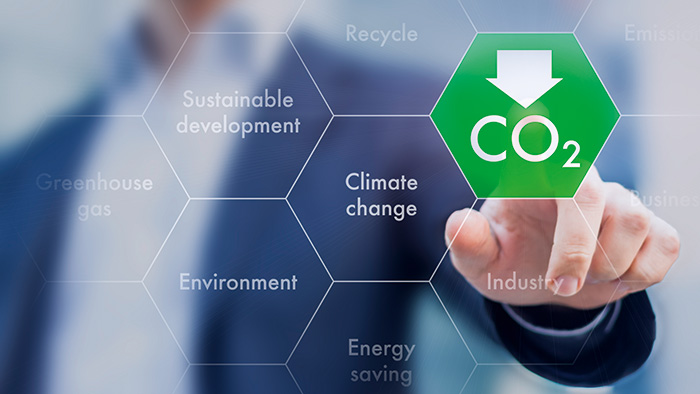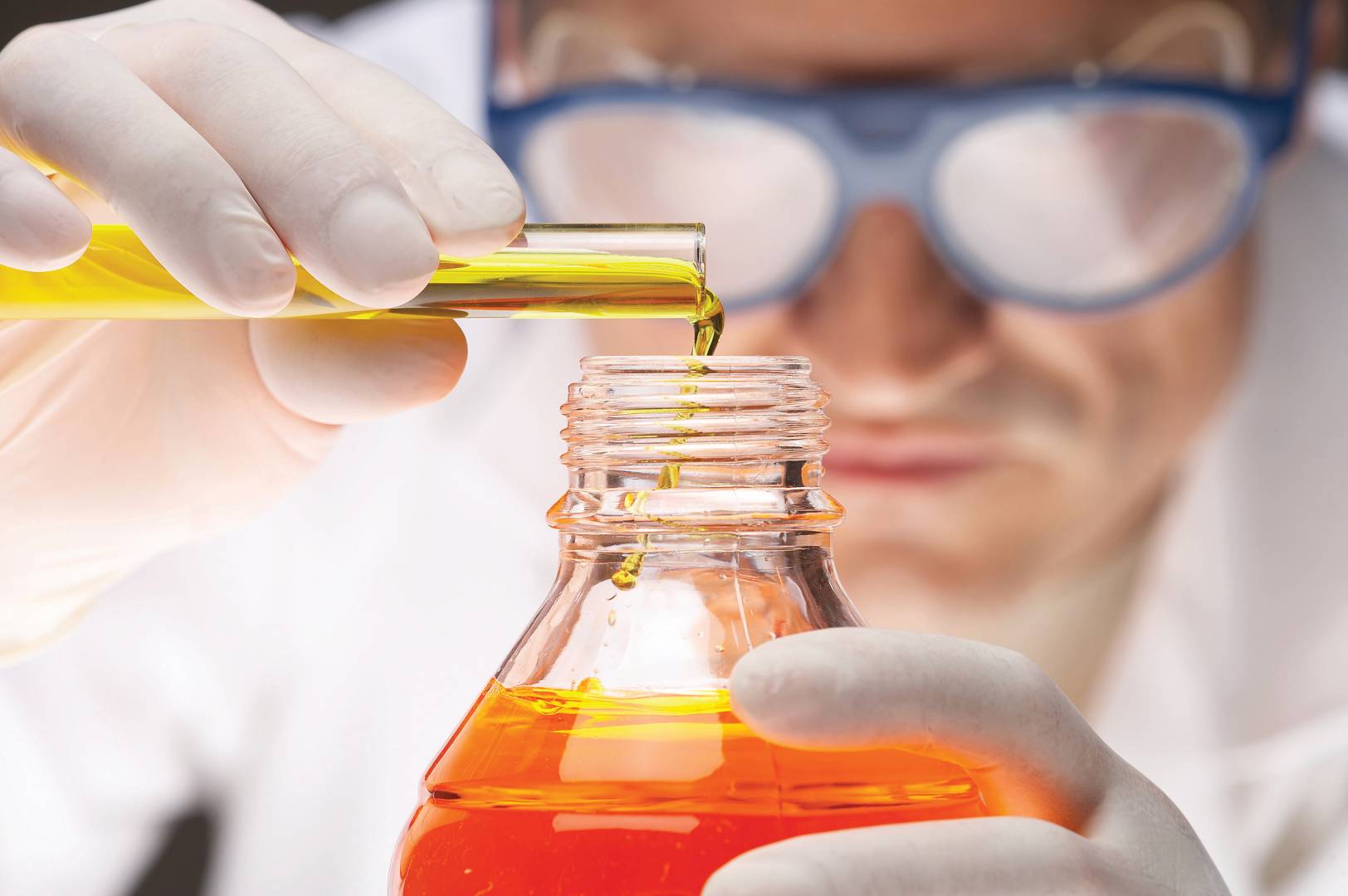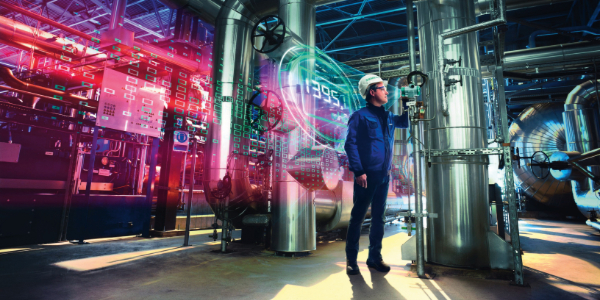Sustainability in the Chemical Industry - Need of the hour

“In an attempt to help treat malaria, English chemist William Perkin set out to synthesis the alkaloid quinine from coal tar about 150 years ago. He failed to synthesise quinine, but he did produce mauve, a stunning purple dye that would permanently affect everything from fundamental chemical synthesis to the design of the current trends, as well as the state of the physical environment and human health. The cornerstone of the twentieth century industrial revolution was the use of fossil fuel-derived hydrocarbons.”
To create dyes and develop practically every chemical or substance on the market, modern society continues to rely on fossil fuel-based hydrocarbons. Fossil fuels are also the primary energy source. However, it is unclear if this reliance will last indefinitely. One of the major drawbacks of this reliance is that the combustion of fossil fuels produces carbon dioxide (CO2) and other waste products such as particulate matter, which end up in the atmosphere and have serious health and environmental repercussions.
In the chemical business, sustainability is not a new concept. So, what's different now? The chemical sector is critical in addressing key societal issues like climate change, global food shortages, and how we dispose of plastic trash. Chemical firms face high expectations: in addition to reducing their own carbon footprint, they are expected to support sustainable solutions and new tactics in every industry they service. After all, the chemicals industry's innovative materials and processes enable many breakthroughs, from bringing new mobility concepts to providing inexpensive housing and guaranteeing a sufficient food supply for the world's population. However, leveraging opportunities in that new environment necessitates a shift away from a reactive, compliance-driven approach and toward generating and capturing value in a long-term manner. Strategy& and PwC have industry experts who can assist you with this.
Three variables that require responses impact the chemical environment and industry dialogue on sustainability:
- Regulation: Investment in new alternative materials and processes is required to comply with recently enacted, more stringent laws such as the EU's gradual ban on single-use plastic bottles and regulations governing potentially hazardous compounds.
- Technology: New technologies are developed at a breakneck speed. Biotechnologies and chemo lysis for recycling, as well as renewable raw materials for manufacturing, are only a few examples. These must be scalable and reasonably priced if they are to be effective.
- Ecosystems: Existing value chains are being reconfigured as new participants, such as recyclers, pre-processors, and tech start-ups, enter the ecosystem. Established businesses will have to rethink their strategies and even reposition themselves.
Chemical companies that actively participate in the debate about sustainability and the chemicals industry, as well as finding solutions to these issues, have a distinct advantage: they can actively leverage growth opportunities rather than simply reacting to developments in order to avoid jeopardising their licence to operate.
Climate change and raw material shortages are two megatrends that have a significant impact on the chemical industry. Chemical firms, which are typically associated with energy-intensive industries, rely heavily on fossil fuels, resulting in substantial greenhouse gas emissions. Furthermore, many products are made from fossil fuels, are CO2-intensive, or are poisonous, and thus damaging to the environment.
Towards a low-carbon, bio-based future
The Paris Climate Agreement, modifications to the EU Emissions Trading System (ETS), and state policies are all putting pressure on the chemical industry to decrease greenhouse gas emissions and environmental effect. Chemical firms must switch to low-carbon energy, processes, and products, which are typically bio-based. As a result, the industry will be able to contribute to the development of a circular economy.
Transitioning to a more sustainable state poses both obstacles and opportunity.
This subject of sustainability transformation comprises numerous strategic, financial-economic, and operational challenges. It does, however, provide chances for businesses to innovate and set themselves apart from their competition.
Bringing concepts to life
In terms of sustainability, chemical industries have had a wide range of experiences. Companies do not usually begin in the same location. Our sustainability experts at Strategy& and PwC will assist you in promoting your unique sustainability agenda. We concentrate on the things that are most essential to you:
Strategy for Longevity
Clarify your sustainability approach, objectives, and future positioning - all while being in line with your corporate strategy.
Adding value
Recognize and revalue the value provided by chemical goods and processes, and integrate this knowledge into new business and monetization models.
Transformation of operations
Analyse your supply chains and production networks from beginning to end, taking ESG, risk management, and geographical factors into account. Develop concepts for a long-term energy source.
Impact evaluation
To evaluate the impact of your business operations across the whole value chain, provide transparency and a complete, dependable database. Don't forget about the environmental and social factors!
Culture and abilities
Become a purpose-driven organisation. Determine where there are gaps in your capabilities and how to close them (e.g., through M&A, alliances or partnerships).
5 Principles towards Sustainability
The panellists agreed on five essential issues that must be addressed in order to inspire a more sustainable chemical industry:
- Green chemistry must foresee the issues it seeks to address. For example, connecting industry activities with the United Nations Sustainable Development Goals is impossible without considering chemistry's role, therefore sustainable chemistry must consider the regulatory problems ahead.
- Green chemistry should not be used to explain bad attitudes about other aspects of the subject. Instead, it should concentrate on how to build on the chemicals industry's ingenuity and promote itself as the next evolutionary step.
- Dismantle the green chemistry enclave. Sustainability inquiries about how users interact with products, as well as how they can recycle and dispose of them - the industry must consider how a product functions in the context of the consumer, as customers are the ones who ultimately drive business growth.
- Incorporate the circular economy into the product development process. Chemical innovation is a multidisciplinary effort, and working together to develop sustainable goods is a fantastic way to promote the benefits of better chemistry as the foundation of cutting-edge materials technology.
- Inform the audience and demonstrate the importance of safe, environmentally friendly chemistry. Ascertain that the general public knows why a product is more sustainable than traditional alternatives, as well as what this entails in terms of the consumer, the environment, and the industry.
Sustainable options are popular among consumers.
While consumers still place a high value on factors like availability and affordability, another element has emerged to question these once-rock-solid value propositions: sustainability. Modern consumers are concerned about the environment and want to safeguard themselves and their children from dangerous manmade components and products. According to Nielsen studies, over three-quarters of people would adjust their buying habits to lessen their environmental footprints, and more than a third are ready to spend extra on products that live up to their sustainability claims.
Consumers are also concerned about the use of fossil fuels and their potential influence on the environment. In reality, more than 60% of Americans believe that widespread greenhouse gas emissions are to blame for climate change. As a result, according to Pew Research Center, support for environmentally friendly energy solutions such as wind and solar power is expanding, with two-thirds of Americans supporting the expansion of sustainable alternatives to fossil fuel and coal. Many people are taking personal steps to reduce their reliance on fossil fuels by acquiring hybrid electric automobiles.
Major Market Highlights:
- Braskem launched I'm green, a recycled polypropylene brand, in the United States to enhance its circular-economy product portfolio. This was done as part of the company's efforts to move from a linear to a circular economy in the plastics industry, so that its products may be appropriately disposed of and recycled after use.
- Eastman Chemical Company introduced Cristal EV600 Copolyester and Eastman Trva Engineering Bioplastic. Trva, a cellulose-based plastic, is used to create color-tinted and opaque packaging that performs better and has a lesser environmental effect. The material is intended to eventually replace acrylonitrile butadiene styrene (ABS) resin.
Conclusion: On the way to a sustainable future
When it comes to improving processes to address the emergence of sustainability, chemical businesses may run into problems if they try to do so on their own. Few operational stakeholders and executives have the time or bandwidth to oversee chemical manufacturing processes while also looking for and implementing shop floor innovations in an extremely competitive market.











